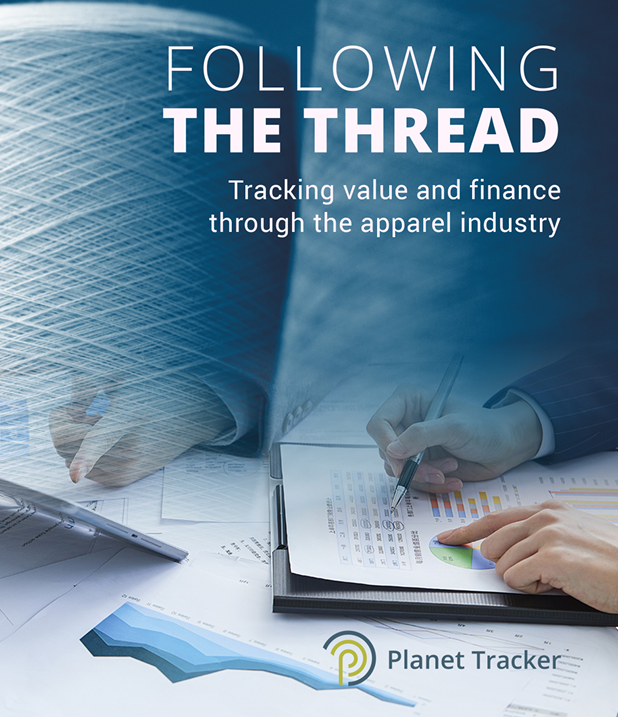
The new report Following The Thread by Planet Tracker analyses 3897 companies across the textile supply chain, arguing textile retailers need to actively engage with suppliers and manufacturers to reduce negative environmental impacts if they want to claim ‘green credentials’.
Key Takeaways
- Visibility in supply chains is going to be increasingly important for fashion retailers in the future.
- The bulk of the industry’s sales, profits and capital is at the retail node of the supply chain.
- In contrast, the environmental damage is focused upstream in the supply chain, notably at the fabric manufacturing node.
- To have a sustainable fashion industry, this mismatch needs to close.
The report finds discrepancies between the location of negative environmental impacts and the location of capital within the supply chain.
It states, fabric manufacturing and fabric production are associated with much of the textile supply chain’s environmental impact – 76% of climate change impact, 74% of resource consumption and 61% of its water use, while only making up a collective 18% of its revenues and 7% of its market capitalisation.
Clothing retail, on the other hand, represents 54% of revenues and 63% of market capitalisation, while only marginally directly contributing to environmental impacts.
The report explains that frequent outsourcing of manufacturing leads to “poor supply chain visibility” and “limited direct control” of most of the negative environmental impacts of the industry by retail companies and investors.
Richard Wielechowski, senior investment analyst (Textiles) at Planet Tracker, comments “While retailers themselves produce relatively few emissions, green claims among brands are meaningless when the clothing they sell contributes to accelerating global warming and polluting water supplies with toxic chemicals.
“That’s why Planet Tracker is calling on investors to pressure retailers to work with their supply chains as they look to reduce their negative environmental impacts. Brands can for example help via direct funding or order guarantees and together with their suppliers drive meaningful action across the whole value chain.”

Furthering its efforts, Planet Tracker has created an interactive textile supply chain dashboard where consumers can compare the location of value and capital to the location of the major environmental impacts that occur in the manufacture, retail and use of apparel.
Planet Tracker says analysis of the current environment finds that regulators are adopting an “increasingly aggressive approach” towards responsibility for supply chain impacts, such as the European Commission Directive on corporate sustainability due diligence. It continues: “We are also seeing international efforts to clamp down on disingenuous ‘green credentials’. Without significant efforts by the textile retail sector to work with their supply chain and help push for real change, these measures could result in significant regulatory exposure for many major companies.”



